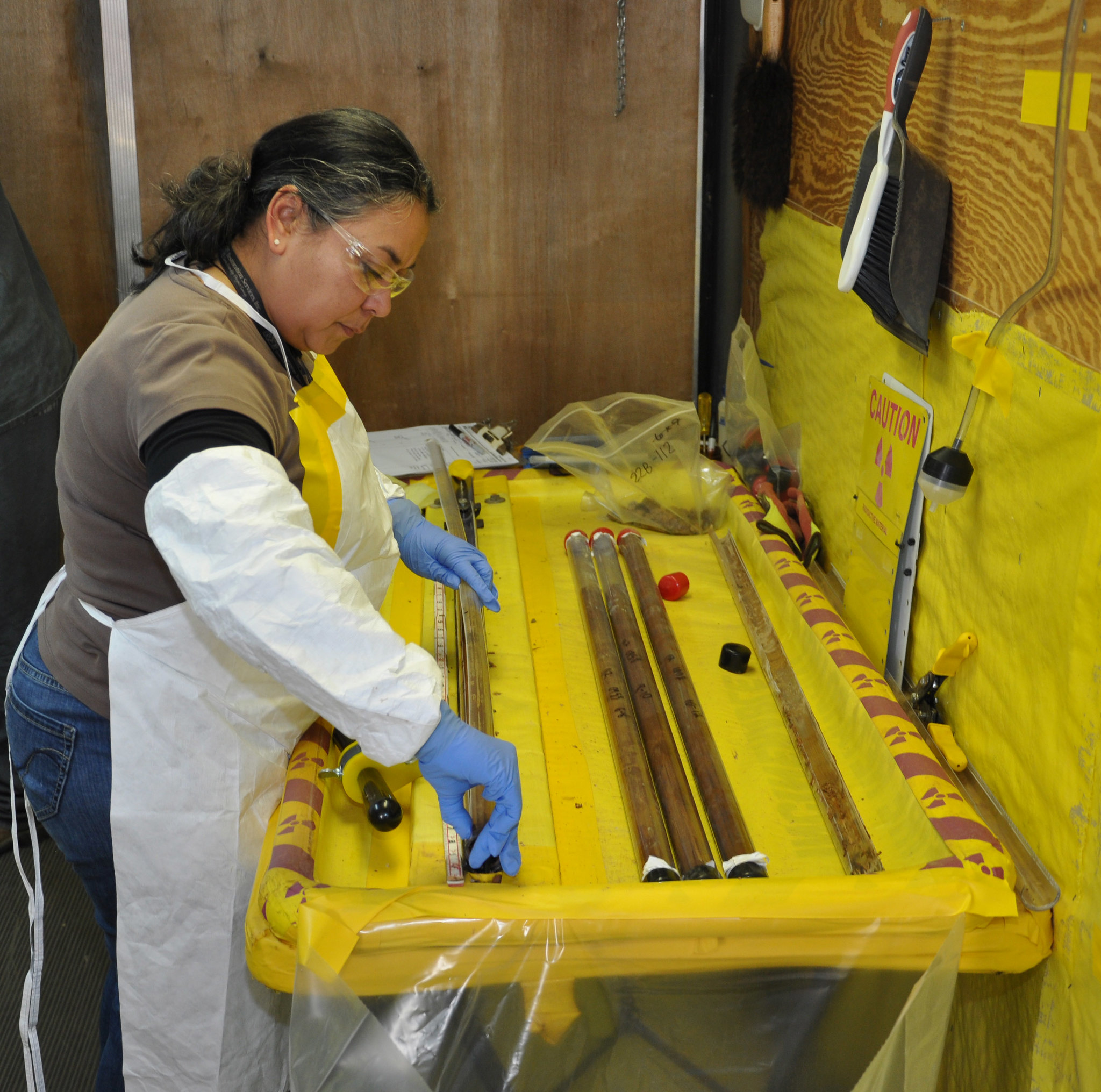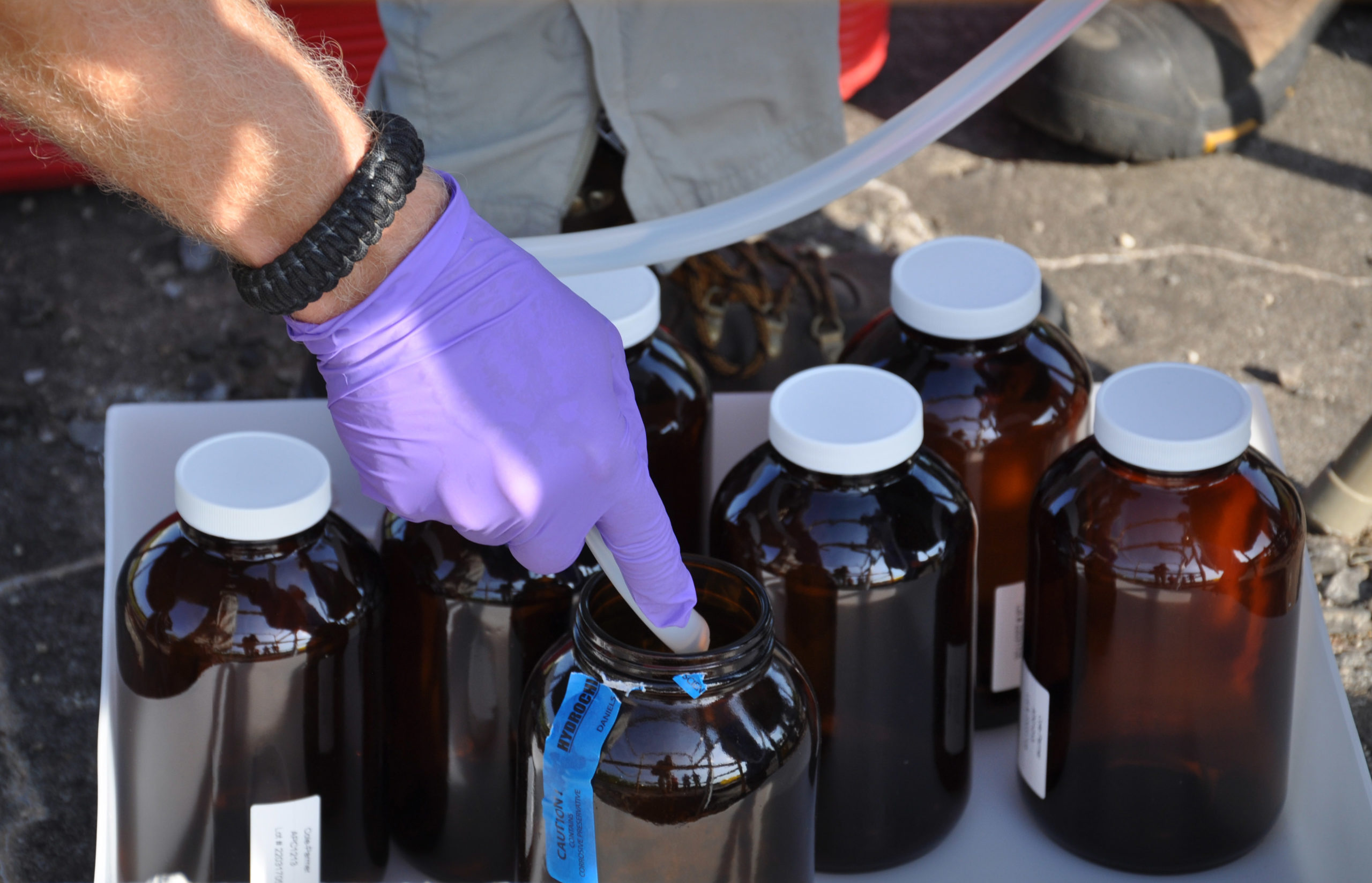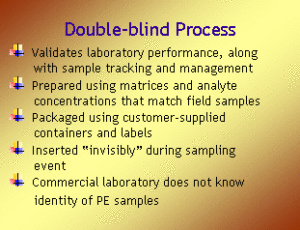The UCOR Sample Management Office (SMO) provides a cost-effective, performance-based approach for the procurement of analytical laboratory and data quality services to support DOE Oak Ridge contractor operations.
Sample Management Office

UCOR Sample Management Office Mission
In May 1996, DOE EM issued a policy requiring the establishment of a single sample management office at each DOE field operations office. This policy eliminated the duplication of effort associated with the awarding and management of contracts, which resulted in the inefficient use of DOE laboratory resources.
Based upon this policy, the SMO mission and objectives are:
- Procure analytical services based upon a best-value added determination and free from any financial interests related to the contracting decision.
- Review sample management activities to assure quality and the cost- effective provision of analytical services.
- Maintain a list of qualified full-service and specialty laboratories that can be used by UCOR and DOE Oak Ridge contractors.
- Establish the routine use of Data Quality Objectives (DQO) processes in planning sampling and analysis activities and effective participation in a national characterization quality assurance program.
- Provide data verification and validation services to projects and programs associated with DOE Oak Ridge contractor activities.
- Technical management of the Environmental Information Management (EIM) program and related database applications.

Sample Management Office Contacts
Key Contacts
Manager – Sample Management Office: John Reynolds
Phone: (865) 719-2128
Senior Project Manager: Phil Clark
Phone: (865) 776-6807
Deputy SMO Manager: Carol Erikson
Phone: (865) 599-4207
Analytical Data Manager: Tammy Presley
Phone: (865) 816-7014
Environmental Information Management: Deidre Tharpe
Phone: (865) 335-7063
SMO Business Manager: Suzanne Correll
Phone: (865) 272-6488
Sample Management Office Services
Please contact the UCOR SMO Manager, John Reynolds, for more information, project estimates, and to initiate a work release for any of the following services offered by the Sample Management Office: 
• Project Assistance and Planning
• Assist in creating data quality objectives and establishing analytical service needs
• Provide technical input for preparing project plans, quality assurance plans, and sampling and analysis plans
• Develop analytical statements of work (SOWs) and select laboratory services
• Track sample receipt by laboratory and monitor analytical progress
• Prepare status reports for project personnel
• Prepare and maintain data receipt schedules
• Perform verification and validation of data deliverables
• Laboratory Performance Evaluation
• Introduce double-blind performance evaluation samples into the sampling stream
• Perform analytical laboratory assessments and audits
• Evaluate and compare performance of laboratories through the Integrated Performance Indicator Program (IPIP)
• Sample and data close-out
• Track sample residues and prepare appropriate documentation reflecting proper disposition
• Ensure that data are stored, archived, and/or destroyed as required by the UCOR records management and document control procedures and in accordance with the DOE Records Disposition Schedules
• Close-out procurement when project is completed
• Provide financial accruals and obligations to project managers
• Provide technical support for all managed database applications; the Oak Ridge Environmental Information System (OREIS), the Project Environmental Measurements System (PEMS-Phoenix), and Tracker

Approved Laboratories
The UCOR Sample Management Office utilizes a suite of qualified, full-service and specialty laboratories whose performance are monitored, evaluated, and compared by the Integrated Performance Indicator Program (IPIP). These laboratories are reviewed under the Department of Energy Consolidated Audit Program (DOECAP).
Double-Blind Performance Evaluation
 Double-blind performance evaluation (PE) samples are introduced into field sampling batches. Samples are introduced in a manner whereby the contract analytical laboratory is unaware of either the nature of the sample (i.e., a PE sample) or of its component concentrations, thus preventing “special” treatment of PE samples.
Double-blind performance evaluation (PE) samples are introduced into field sampling batches. Samples are introduced in a manner whereby the contract analytical laboratory is unaware of either the nature of the sample (i.e., a PE sample) or of its component concentrations, thus preventing “special” treatment of PE samples.
Double-blind PE samples, created from bulk materials, groundwater, surface water, or soils collected from near the sampling areas, mimic routine field samples in both matrix and contaminant concentrations. PE samples are prepared in the following matrices: groundwater, surface water, and soil.
Bulk materials have been certified for background concentrations by an independent laboratory. A sample aliquot is spiked with radiological, inorganic, or organic traceable standards.
After preparation, PE samples are sent by courier to the field sampling location where they are inserted into the field batch with other samples and sent to the laboratory for analysis. PE sample packaging and labels are identical to the field samples to ensure that they are not identified as PE samples by the commercial laboratory. PE samples are then analyzed by the laboratory along with ordinary samples; results of PE sample analyses are therefore useful in evaluating the commercial laboratory’s performance as a whole.
PE analytical results from the commercial laboratory are evaluated against documented values. Comparison studies help ensure that accurate, reliable, high-quality data are received from the commercial analytical laboratories.
Integrated Performance Indicator Program
Accurate, reliable, cost-effective, and quality laboratory performance is crucial to ensuring high-quality data. Performances of analytical laboratories are evaluated and compared through the Integrated Performance Indicator Program (IPIP). The objective of IPIP is to evaluate analytical laboratories based on a set of standardized performance criteria that can then be quantitatively tracked and trended. The SMO uses IPIP reports to monitor and evaluate laboratories. Satisfactory participation in the program is required for continued utilization. Laboratories are evaluated on the following criteria:
- Holding times
- Turnaround times (TAT)
- Sample disposition
- Contract compliance verification
- Data deliverables
- Single-blind performance evaluation program
- Double-blind performance evaluation program
By tracking these performance indicators, the SMO is able to team with the best performing laboratories. In addition, individual laboratory strengths allow the SMO to optimize laboratory selection to meet the needs of the project.


